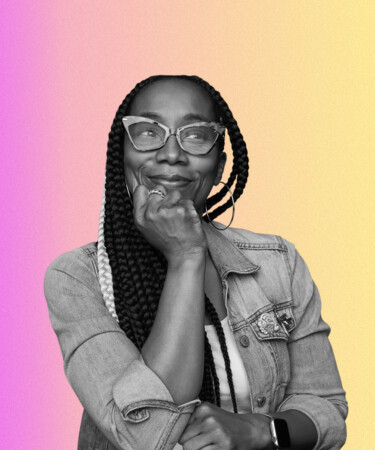In the opening for her recently published book, “Black Mixcellence,” Tamika Hall introduces readers to her first experience with alcohol: gulping down wine at her first communion ceremony. A familiar scene for anyone who grew up in the Catholic church, she writes that it left a particularly significant impression. Learning about the religion’s relationship with wine sparked the first conversations she had about alcohol.
Through the 209-page book, freelance writer and content strategist Hall further illustrates the integration of alcohol in her own life, similar to how Black mixologists are entwined with the history of cocktails and many drinks recipes themselves. Each chapter centers on the story of a classic cocktail or modern innovation and the Black creators who contributed to them.
Alongside bartender and brand ambassador Colin Asare-Appiah, Hall archives the oft-forgotten and long overlooked contributions of African-American mixologists.
“Social media, and the public desire to re-create bespoke cocktails that people have enjoyed at bars and now want to make it home, have both been at the forefront of this movement to celebrate Black mixology,” Asare-Appiah writes in the foreword. “This celebration is long overdue, and as a Black mixologist, it’s great to see the opportunity, but a lot more work needs to be done.”
VinePair sat down with Hall to chat about the extensive research for the book, her favorite cocktail innovations, and what she hopes to see in the industry going forward.
[Editor’s note: This interview has been edited and condensed for clarity.]
1. How did you first become interested in the drinks business?
Who’s not interested in food and drink? It’s amazing — it’s honest. There’s no sugarcoating when you share your opinion. For me, that’s why I liked beverages. You’re exposed to a lot of different things.
2. Your book, “Black Mixcellence,” spotlights historic figures in the cocktail industry that might have been formerly overlooked. How would you attribute the misinformation or lack of information about Black mixologists?
As far as recipes were concerned, before people were free from slavery, reading and writing was prohibited. A lot of recipes, commentary, and even history and stories about people were not documented on paper. Tom Bullock was the first Black mixologist who penned a cocktail book. Prohibition pushed that to the side. It’s a combination of that and a lack of representation.
3. Your book contains so many different backstories. Are there any that surprised you?
I had no idea about Bertie Brown, and her being a Black woman making moonshine. She had such an influence on Prohibition. She had a bed and breakfast and was making moonshine, and people were traveling to find her product and purchase. I had no idea.
4. What is her impact on the industry today?
She was just trying to make her mark on Prohibition and make money too. Because, then, people had to figure out how to make money when there was no alcohol to buy, sell, etc. All the mixologists I interviewed for the book come with their own story: How they came to mixology, what they do, and some started their own businesses. Everyone has their own different influences. Some felt making a cocktail is an instant gratification [art form]. You create this drink, serve it to people, and you know right away if they like it or don’t.
5. During research for the book, were there any particular drink innovations that caught your eye?
There’s a cocktail [in the book] that’s like a Piña Colada, but it’s made with avocado so it’s green. Who thought to put avocado in a cocktail? I’ve never seen that before. There’s also twists on classics, so very modern versions of old cocktails. You have the Chai Old Fashioned, which incorporates chai tea in the Old Fashioned — it’s like a marriage of the past but bringing it into the future.
6. Beyond spotlighting Black mixologists and creating more inclusive spaces, what is the next step to widening representation in the industry?
It’s continuing to document and continuing to provide a platform. Even though I wrote the book, one of my biggest goals is to [give] mixologists the platform. So, if there’s some kind of demonstration or some kind of panel, I would rather them speak to their talent, what they’re doing, where they’re at, and where they’re going next, versus me talking about the book or about them. It’s really just about providing the platform. For me, it’s potentially writing more books and documenting more history. I’ve been getting people to do their own digging into the history and creating their own documentation of their content.
This story is a part of VP Pro, our free platform and newsletter for drinks industry professionals, covering wine, beer, liquor, and beyond. Sign up for VP Pro now!
